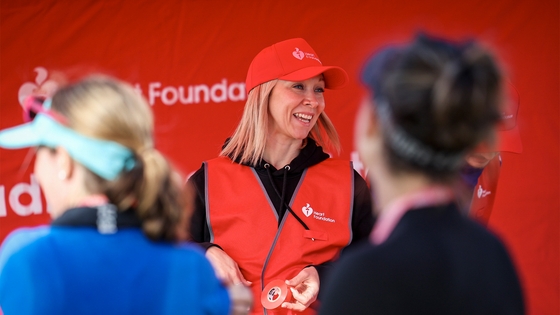Implementing evidence-based guidelines & shared decision making tools to improve CVD prevention
/
Implementing evidence-based guidelines & shared decision making tools to improve CVD prevention
Dr Carissa Bonner, University of Sydney
2018 Partnership Engagement Grant
Years funded: 2019-2022
We know that one of the best ways to reduce your chance of having a heart attack or stroke is to use a risk calculator, and consider both lifestyle changes and medication if you are at high risk. But GPs often have trouble accessing and explaining the results of risk calculators, resulting in many patients getting inaccurate information and advice about reducing their risk. This project provides GPs and patients with a new format for the Australian cardiovascular disease (CVD) prevention guidelines, which aims to improve communication about CVD risk and its management.
The core intervention is a website linking: newly formatted guidelines (evidence summaries + practical information), GP training (example cases + audit and feedback) and patient communication tools (risk calculator + decision aid). Research has shown these strategies improve recommended medication prescribing, doctor-patient communication about the risks and benefits of medication, and patient understanding of their risk and lifestyle and medication management options. We have tested the intervention with over 200 GPs and patients, confirming high levels of satisfaction and interest in using it. However, in order to implement it and use it, GPs would like it to be linked to their medical software, and have highlighted the important role of practice nurses in CVD prevention activities.
This implementation study will therefore integrate the online resources with medical software and Heart Foundation programs to facilitate accurate risk assessments and referral of patients to risk reduction programs, including training for practice nurses. We will test whether these combined strategies improve:
- accurate CVD risk assessment (in line with Health Professional Ambassador Program aims),
- referral to lifestyle change programs (in line with My Health for Life program aims); and
- risk-appropriate medication prescribing (to high risk and not low risk patients, in line with national guidelines).
You might also be interested in...

NSW Cardiovascular Research Network (NSW CVRN)
Collaboration of NSW most eminent cardiovascular researchers. Combining expertise in the fields of heart disease, stroke, diabetes and kidney disease.

Research Connect
Subscribe to updates on heart health research, including ongoing study insights and funding opportunities.

Australian Chronic Disease Prevention Alliance
The Australian Chronic Disease Prevention Alliance (ACDPA) brings together five leading non-government health organisations to prevent chronic disease in Australia.
Last updated12 March 2024